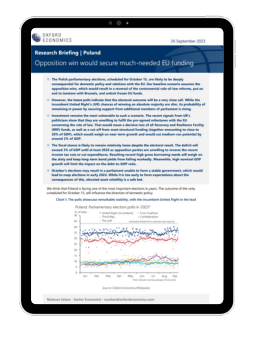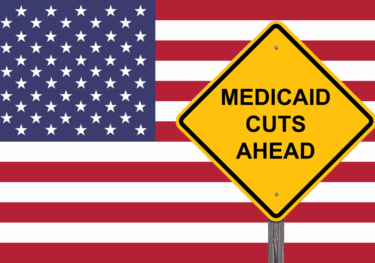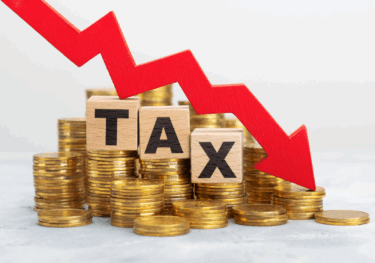Research Briefing
| Sep 26, 2023
Opposition win would secure much-needed EU funding

The Polish parliamentary elections, scheduled for October 15, are likely to be deeply consequential for domestic policy and relations with the EU.
What you will learn:
- However, the latest polls indicate that the electoral outcome will be a very close call. While the incumbent United Right’s (UR) chances of winning an absolute majority are slim, its probability of remaining in power by securing support from additional members of parliament is rising.
- Investment remains the most vulnerable to such a scenario. The recent signals from UR’s politicians show that they are unwilling to fulfil the pre-agreed milestones with the EU concerning the rule of law.
- The fiscal stance is likely to remain relatively loose despite the electoral result. The deficit will exceed 3% of GDP until at least 2026 as opposition parties are unwilling to reverse the recent income tax cuts or cut expenditures.
- October’s elections may result in a parliament unable to form a stable government, which would lead to snap elections in early 2024.
Tags:
Related Posts

Economic consequences of tariffs are becoming evident
We now expect world GDP to expand by 2.6% this year and 2.4% in 2026.
Find Out More
US Medicaid cuts will hit some states harder than others
Millions are expected to lose coverage due to new eligibility rules and the expiration of premium subsidies.
Find Out More
Lower US taxes help offset higher costs
The US economy will enjoy rising demand in 2026 and 2027, boosted by the recent deficit financed federal tax and spending legislation.
Find Out More
SNAP cuts will deal a blow to low-income households in the US
The budget reconciliation bill (OBBBA) ushers in significant cuts to the federal government's nutrition assistance program, or SNAP, that will fall the hardest on lowest-income households.
Find Out More[autopilot_shortcode]
